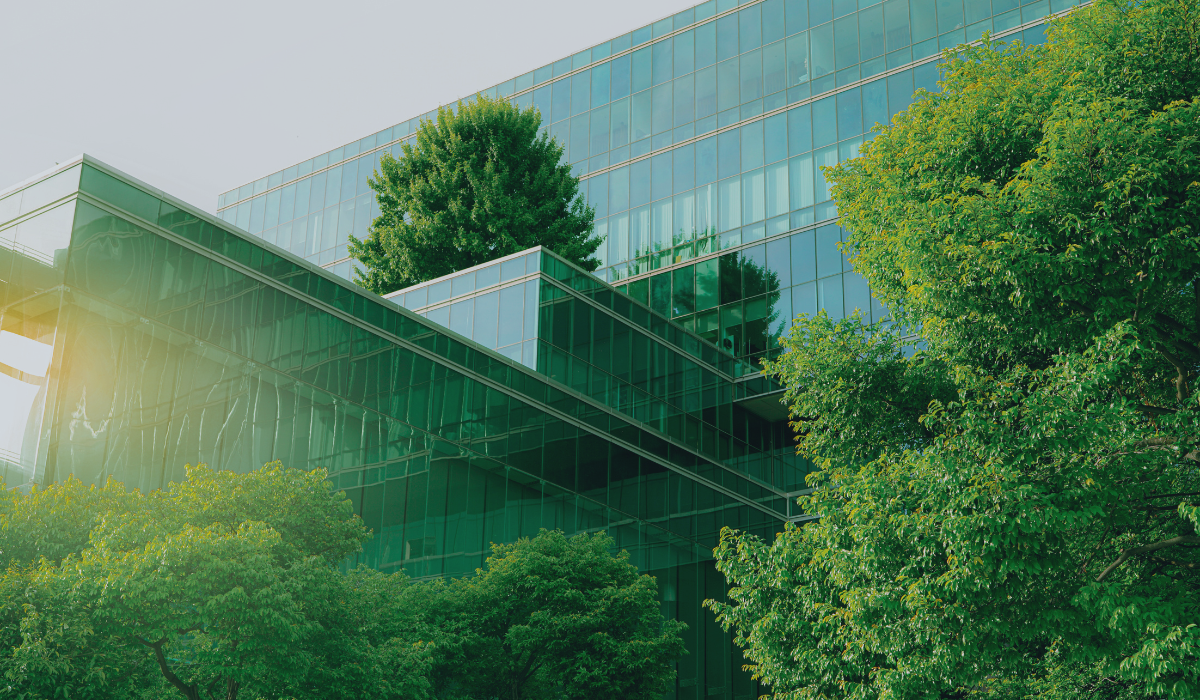5 Trends Shaping the Future of Corporate Real Estate
Introduction
The corporate real estate sector is evolving rapidly, influenced by recent global events and technological advancements. Companies are rethinking their office spaces, focusing on flexibility, sustainability, and employee well-being. This blog highlights the key emerging trends in corporate real estate that are shaping the future of work environments.
1. The Shift Towards Hybrid Workspaces

Definition and Importance
Hybrid workspaces combine remote work with traditional office settings, offering employees the flexibility to work from home or the office. This model has gained significant traction due to its ability to adapt to varying work preferences and needs.
Benefits of Hybrid Workspaces
- Flexibility for Employees: Employees can choose their preferred work environment, leading to improved work-life balance.
- Cost Savings for Companies: Reduced need for large office spaces can result in significant cost savings on rent and utilities.
- Enhanced Employee Satisfaction and Productivity: Flexibility can lead to higher job satisfaction and productivity as employees work in environments that suit them best.
Challenges and Considerations
- Managing Remote and In-Office Employees: Ensuring consistent communication and collaboration between remote and in-office employees can be challenging.
- Technology and Infrastructure Requirements: Reliable technology and robust infrastructure are essential to support hybrid work models, including secure VPNs, collaboration tools, and remote access to company resources.
2. Increased Focus on Sustainability

Green Building Certifications
Green building certifications, such as LEED (Leadership in Energy and Environmental Design) and BREEAM (Building Research Establishment Environmental Assessment Method), are becoming standard in corporate real estate. These certifications recognize buildings that meet high sustainability standards.
Energy-Efficient Technologies
- Smart Building Systems and IoT: The integration of smart building systems and the Internet of Things (IoT) allows for better energy management and increased efficiency. Sensors and automation can optimize lighting, heating, and cooling based on occupancy and usage patterns.
- Renewable Energy Sources: Incorporating renewable energy sources, such as solar panels and wind turbines, can reduce a building’s carbon footprint and energy costs.
Sustainable Design and Materials
- Incorporation of Sustainable Materials: Using sustainable materials in construction and renovation, such as recycled steel, reclaimed wood, and low-VOC paints, reduces environmental impact.
- Benefits of Biophilic Design: Biophilic design integrates natural elements into the built environment, improving air quality and employee well-being through increased exposure to natural light, plants, and natural textures.
3. Adoption of PropTech

What is PropTech?
Property technology (PropTech) refers to the use of technology to innovate and improve the real estate industry. This includes software, hardware, and data analytics tools designed to enhance property management and operations.
Impact of PropTech on Corporate Real Estate
- Data Analytics for Better Decision-Making: PropTech solutions provide real-time data on building performance, occupancy rates, and energy usage, helping companies make informed decisions.
- Smart Building Management Systems: These systems enable automated control of building operations, such as lighting, HVAC, and security, improving efficiency and reducing operational costs.
- Virtual and Augmented Reality for Property Visualization: VR and AR technologies allow for immersive property tours and visualizations, aiding in design, marketing, and leasing processes.
Future Prospects
Emerging PropTech innovations, such as blockchain for property transactions and AI-driven predictive maintenance, hold promise for further transforming the corporate real estate landscape.
4. Flexible Leasing Models

What Are Flexible Leases?
Flexible leases offer short-term, adaptable leasing options that cater to the dynamic needs of modern businesses. This includes coworking spaces, shared offices, and short-term leases.
Benefits for Businesses
- Adaptability to Changing Business Needs: Flexible leases allow companies to scale their office space up or down based on current requirements.
- Cost Efficiency: Businesses can avoid long-term lease commitments and only pay for the space they need.
- Scalability: As companies grow, they can easily adjust their office space to accommodate more employees or new operations.
Examples of Companies Offering Flexible Leasing Solutions
- WeWork: Known for its global network of coworking spaces that provide flexible lease terms.
- Regus: Offers a variety of office space solutions, including coworking spaces and virtual offices, with flexible lease options.
5. The Rise of Wellness-Centric Workspaces

Importance of Employee Well-being
Employee well-being is increasingly recognized as a critical factor in productivity and job satisfaction. Companies are designing workspaces that promote health and wellness.
Features of Wellness-Centric Workspaces
- Access to Natural Light: Maximizing natural light in office design can improve mood and reduce eye strain.
- Indoor Air Quality Management: Ensuring clean air through proper ventilation, air purifiers, and the use of low-emission materials can enhance overall health.
- On-Site Wellness Facilities and Programs: Providing amenities such as fitness centers, meditation rooms, and wellness programs encourages a healthier lifestyle for employees.
Case Studies
- Google’s Office Design: Google’s offices are known for incorporating wellness-centric features, including extensive natural light, on-site fitness facilities, and healthy food options.
- Salesforce’s Well-being Initiatives: Salesforce integrates wellness programs and mindfulness practices into its workplace culture, promoting a holistic approach to employee health.
Conclusion
Staying updated with the emerging trends in corporate real estate is essential for maintaining a competitive edge and creating work environments that attract and retain top talent. The shift towards hybrid workspaces, increased focus on sustainability, adoption of PropTech, flexible leasing models, and wellness-centric designs are reshaping the industry.
By understanding and adopting these trends, companies can enhance their operational efficiency, sustainability efforts, and employee satisfaction.
For more insights and tailored solutions, visit Move IT Cleaning and discover how we can support your corporate real estate strategies with our sustainable and wellness-focused cleaning services.
You May Also Like
These Related Stories

Going Green: 6 Practical Steps to Make Your Office More Sustainable

The Role of AI in Sustainable Facilities Management

No Comments Yet
Let us know what you think